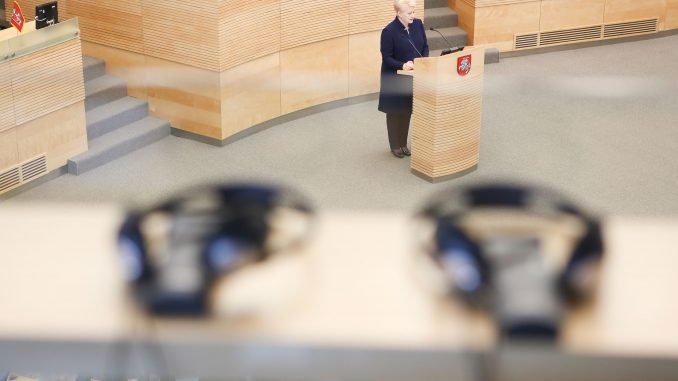
“There were no surprises as we were ready for what she said,” Dovilė Jakniūnaitė of the Institute of International Relations and Political Science at Vilnius University told BNS.
“Those who listen to the president’s speeches or her statements on Lithuania’s foreign policy probably knew what to expect. Just as last year, this year she opened her speech with national security and foreign policy issues, and not economic and law enforcement problems. You start with what you want to stress as very important,” she said.
Jakniūnaitė noted that the president chose to speak about foreign policy principles in general “without going into details, just defining her principled values and then she moved on to domestic policy problems”.
Political observer Rimvydas Valatka says the president did not mention specific allies and was therefore “avoiding the key issue”.
In his words, the past year “has probably been the most difficult one in terms of foreign policy, and I had wished the key person in charge of foreign policy to say something about our union with Poland becoming stronger, or our union with America, or that nothing has changed”.
“A lot of attention was given to foreign policy this year but I was surprised by the list of mentioned countries, which was Russia, Ukraine, Moldova, Georgia, the Islamic State. Georgia, Ukraine and Moldova were mentioned accidentally because we are helping them. Russia was mentioned as a threat, naturally. But she said absolutely nothing about our key allies, like Poland, with whom we would be the first to withstand Russia’s assault, if that happened. Or America upon which our entire defence power depends. Or Germany,” Valatka told BNS.
In her State of the National Address, the Lithuanian president warned that the world was not a safe place, mentioning Russia’s invasion into Ukraine, the Islamic State and instability in Africa. She also added that by helping Ukraine, Moldova and Georgia, Lithuania was “building a ring of security and democracy around Lithuania”.

Be the first to comment